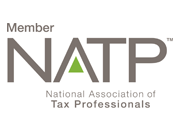Common Frustrations When Dealing with the IRS When You Owe Back Taxes
August 27, 2024
Understanding the major areas of frustration that individuals face during this time
Dealing with the IRS can be a daunting and frustrating experience, especially when attempting to resolve substantial tax debt independently. Many taxpayers find themselves entangled in a web of bureaucracy, with confusing and complex procedures.
In this article, we'll shed light on the major areas of frustration that individuals face when trying to contact the IRS on their own and explain why seeking professional tax relief assistance is often the best path to resolution.
Endless Wait Times & Automated Phone Systems
One of the most common frustrations taxpayers encounter when reaching out to the IRS is enduring long wait times on hold. The sheer volume of callers seeking assistance often leads to extended wait periods, leaving individuals frustrated and wasting valuable time.
On top of dealing with the wait times, navigating the IRS's automated phone system can feel like an endless loop of menu options, recordings, and prompts.
Many taxpayers struggle to reach a live representative or get answers to their specific questions. Professional tax relief firms like ours have dedicated numbers for professionals, as well as staff and processes for getting in touch with the IRS or state on your behalf.
Lack of Clarity and Inconsistent Information
IRS communications can be laden with complex jargon and technical terms that are challenging for the average taxpayer to decipher. Understanding notices, forms, and tax codes often requires expert knowledge.
Taxpayers also may receive conflicting information or advice from different IRS representatives. This inconsistency can lead to confusion and hinder progress in resolving tax issues, and often, it can make your problems worse.
Lengthy Response Times
When taxpayers correspond with the IRS through mail or fax, response times can be excruciatingly slow. Waiting weeks or months for a reply can delay the resolution process and amplify frustration.
Complex Documentation & Form Requirements
Submitting the required documentation to the IRS can be an intricate and demanding task. Missing or incorrect documents can lead to further delays and complications.
Not only is the documentation difficult, but IRS forms are notorious for their complexity. Filling out forms accurately can be challenging, and errors can lead to rejected submissions and additional hassles.
Intimidating IRS Notices & Negotiating
Receiving a notice from the IRS can be intimidating, especially when it includes legal language and threats of penalties or liens. Many taxpayers feel overwhelmed and unsure how to respond effectively. Once they eventually get in touch with an IRS representative, the negotiation process can be a stressful endeavor. Taxpayers may feel unequipped to handle the negotiation process, leading to unfavorable outcomes.
Given the myriad challenges and frustrations associated with navigating the IRS independently, many individuals turn to tax resolution professionals for assistance. Tax relief firms like ours have knowledge, experience, and resources to:
- Expedite the resolution process by communicating directly with the IRS on the taxpayer's behalf.
- Interpret complex tax codes, notices, and forms.
- Negotiate favorable terms for tax debt repayment.
- Provide clarity and guidance throughout the process.
- Alleviate the stress and anxiety associated with IRS interactions.
The frustrations of dealing with the IRS on your own are undeniable. From interminable wait times to intricate documentation requirements, taxpayers often find themselves overwhelmed and disheartened.
Seeking professional help from a reputable tax resolution company Advantage Tax Relief
can be the most effective way to navigate the complex world of tax debt resolution, offering individuals the support and expertise needed to achieve a favorable outcome while alleviating the burden of IRS-related stress.
Contact our office today at 630-773-3200
for a free, no-obligation consultation
and let us deal with the IRS for you.

The IRS in December sent a total of $2.4 billion in "special payments" to roughly 1 million Americans, part of an effort to ensure that people who didn't receive all of their federal stimulus checks during the pandemic would finally get the money. Most eligible taxpayers have already received their Recovery Rebate Credit, as the payment is called, but for those who haven't there is still time to submit a claim. But time is running out, as the deadline to file a claim is April 15. Here's what to know. What to know about the $1,400 IRS stimulus checks The Recovery Rebate Credit was designed for people who didn't get all or some of the stimulus checks when they were issued during the pandemic. Lawmakers authorized three stimulus payments, with two sent in 2020 and a third in 2021. The checks are a holdover from the three stimulus payments that were sent during the pandemic, as some people may not have received some of the money, even if they were eligible. The tax agency disbursed the funds after reviewing internal data that showed many people had filed tax returns but yet didn't claim what is known as the "recovery rebate credit" in 2021. However, non-filers, or those who have not filed Payment amounts will vary by person, with a maximum amount of $1,400 per recipient, the agency said in a statement. Who will get a payment from the IRS? Most taxpayers who were eligible for the stimulus payments have already received them directly, or later through the recovery rebate credit, the IRS said. However, the encourages non-filers to claim credits before the approaching April 15 deadline, as they may be eligible for the the up to $1,400 payment. Who is not eligible for a payment from the IRS? The eligibility requirements to file a claim to the 2021 Recovery Rebate Credit are as follows: -You are a legal U.S. resident. -Either you or someone you claim as a dependent has a valid Social Security Number or Adoption Taxpayer Identification Number issued by the IRS. -You cannot be claimed as a dependent on another taxpayer's 2021 tax return. -See here for more information on eligibility. Do you need to apply for the IRS payment? For those who have not yet received a payment, the answer is yes. While most eligible taxpayers have already received the funds through automatic payments, eligible non-filers will have to file a claim in order to get their payment. In order to claim the 2021 Recovery Rebate Credit, taxpayers must file a 2021 tax return by the April 15, 2025, deadline, "even if their income from a job, business or other source was minimal or non-existent," according to the IRS' website. Detailed information on how to file a claim for the 2021 credit can be found here. When will the IRS send the payments? The tax agency said the checks will be sent in December, with most of the payments arriving by late January 2025. The money will either be automatically direct deposited to the recipient's bank account or will arrive in the mail via a paper check. Contact us today for all your IRS needs! {{content_library.global.phone.148012611}}

Tax season started in late January, but the IRS’s latest statistics show that many Americans are still waiting to file their taxes. As of February 7, 7.7% fewer tax returns have been received by the agency compared to a similar time frame last year, according to its latest data release. While the IRS expects filing numbers to even out, the IRS.gov website has experienced a 40% decline in visits this year to date over last year. Francine Lipman, CPA, a tax law professor at the University of Nevada, Las Vegas, says the reasons could be endless but probably come down to simple procrastination. “Despite all the Super Bowl ads, I don’t believe that tax issues are on people’s radar yet,” adds Lipman. This is surprising considering the political climate, says Jordan Rippy, an accounting professor at Johns Hopkins University’s Carey Business School, who expected to see an uptick in returns filed this year. “Given the general climate surrounding the new administration, I would have expected more anxiety in the general population and a desire to receive refunds more quickly,” she tells Fortune. Elon Musk’s Department of Government Efficiency (DOGE) reportedly visited the IRS on Thursday to begin analyzing the agency’s operations. Senator Ron Wyden (D-OR), ranking member of the Senate Finance Committee, later posted on X that “if your refund is delayed, they could very well be the reason.” Average tax refunds are higher this year so far The rise in electronic filing is one of the biggest changes to the tax system in the last decade. With over 90% of individual taxpayers now filing their returns online, the process has become easier to handle for many Americans. But taxpayers still miss out on over $7 billion in underclaimed and unclaimed tax credits and deductions each year. In the 2025 tax season to date, tax filers have received a 18.6% increase in their average refund amount ($2,065) compared to this time last year ($1,741). The IRS cautions this isn’t a perfect indicator of the final trend in tax refunds, since it’s early in the season. The agency says most refunds are issued within 21 days. In the final analysis, the average refund last year was around $3,138. Compared to 10 years prior, last year’s average rebate was down nearly 30% on an inflation-adjusted basis. Rippy says she is surprised that average tax refunds have not decreased more as Americans realize they can adjust their withholdings and get more money per paycheck throughout the year. “If you receive a large tax refund, what you've essentially done is given a loan to the government over the last year that you didn't have to give them, and you've done that interest-free,” says Rippy. At the same time, she admits that the fact that many Americans expect a big refund year after year is a good thing, as it’s a form of forced savings. While many end up saving their refund, others use it to pay down debt, make a home improvement, or go on vacation.

If you’re dealing with IRS wage garnishment, it can feel like you're trapped in a difficult situation. The IRS can take a portion of your paycheck to satisfy your tax debt, causing serious financial strain. However, you do not have to face this alone. There are steps you can take to stop garnishment and restore control over your finances. This guide will help you understand what wage garnishment is, why it happens, and what actions you can take to end it. Understanding IRS Wage Garnishment Wage garnishment is a legal tool used by the IRS to collect unpaid taxes. Unlike many other types of debt collection, the IRS does not need a court order to garnish your wages. They will send you a Final Notice of Intent to Levy before initiating garnishment, and if you don't act, they will take a portion of your paycheck to pay off your tax debt. How Wage Garnishment Affects You Wage garnishment can create numerous challenges, including: - Loss of Income: With part of your wages withheld, it can be difficult to meet daily living expenses. - Damage to Your Credit: Unresolved tax debts and garnishments can hurt your credit rating, making it difficult to obtain loans or secure favorable financing terms in the future. - Stress and Emotional Toll: The financial pressure can create stress, affecting your mental health and relationships. Professional Impact: If colleagues find out about the garnishment, it could affect your reputation at work. Steps to Take to Stop IRS Wage Garnishment If you’re facing wage garnishment, take action quickly to put an end to it: 1. Respond to IRS Notices Immediately If you receive any IRS notice about garnishment, it's vital to act quickly. Ignoring it will only escalate the situation. Contact the IRS and request a Collection Due Process hearing where you can address the garnishment. 2. Explore Payment Plans and Agreements The IRS offers various options to settle your debt, such as installment agreements or an Offer in Compromise (OIC). These options allow you to repay your debt over time or settle it for less than what you owe. 3. Apply for Hardship Relief If the garnishment is putting you in financial distress, you may qualify for a hardship exemption, which can temporarily stop the garnishment while you work out a solution. 4. Contest the Tax Debt If you believe the IRS has made a mistake in assessing your tax debt, you have the right to dispute it. During this dispute process, garnishment can be put on hold until the matter is resolved. 5. Seek Professional Help Dealing with the IRS alone can be overwhelming. A skilled tax professional can help you navigate the complex process, negotiate with the IRS, and secure the best possible resolution for your situation. Why You Should Work with Advantage Tax Relief The process of stopping IRS wage garnishment requires specialized knowledge and experience. Advantage Tax Relief, located in Itasca, IL, offers over a decade of experience in tax resolution. Their team of experts knows how to work with the IRS to resolve wage garnishment issues and put together a personalized plan for you. Working with Advantage Tax Relief means having a dedicated partner who understands the nuances of IRS procedures and will advocate on your behalf to reach a favorable resolution. Their team will help you explore all options, including negotiating payment plans, filing for hardship relief, or contesting tax assessments. Take Action Today Don’t let wage garnishment control your life. Contact Advantage Tax Relief in Itasca, IL at 630-773-3200 for a consultation. Their team is ready to guide you through this process, offering the help you need to regain control of your finances and find relief from the IRS.







Share On: